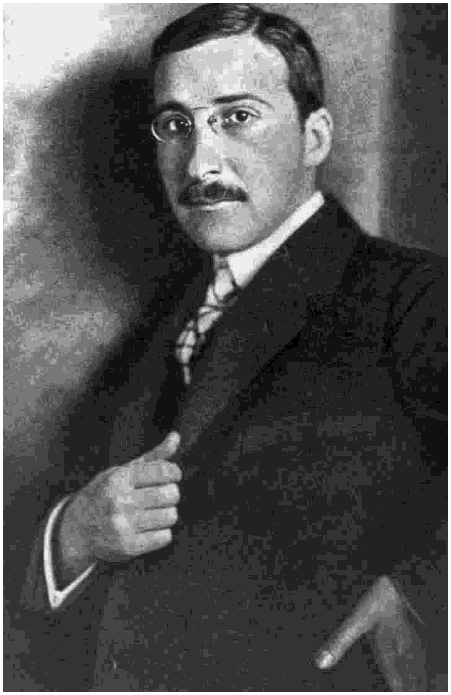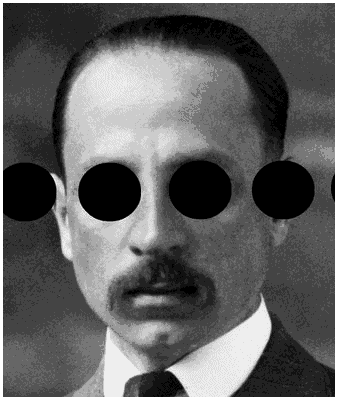Of Yesterday
Stefan Zweig
Anthea Bell, Translator
(Pushkin Press)

From the end of the Napoleonic era until the assassination at Sarajevo, the world according to Zweig was blissful, innocent, glorious. He and his friends would argue poetry and music and art in the pre-WWI coffee houses of Vienna. They would skip classes to read Rilke, listen to Schubert, memorize Goethe, declaim Shakespeare, study the newest "feuilletons." Then came the General Mobilization of 1914 ... which many of them cheered.
During the hostilities, Zweig worked at the Austrian War Archives, and his journeys of research into Galicia and points east led him to travel on troop trains filled with the wounded and dying. It made him a life-long pacifist.
Afterwards, he wrote novels --- Amok, Because of Pity, Fantastic Night were some of the most famous --- and he tells us that his works "were translated into French, Bulgarian, Armenian, Portuguese, Spanish, Norwegian, Latvian, Finnish and Chinese." Through this period, until the end of his life, he longed for the lost Edwardian times ... where a Viennese coffee house was "the best cultural source for all novelty."
Then there are his friends. Rilke, Rodin, Yeats, Gorky, Toscanini, Anatole France, Paul Valéry, Romain Rolland, James Joyce, who, he writes, personally loaned him a copy of Portrait of the Artist as a Young Man..
And then there is Freud:
- The friendly hours I spent with Sigmund Freud in those last months before the catastrophe showed me ... how even in the darkest days a conversation with an intellectual man of the highest moral standards can bring immeasurable comfort and strength to the mind.
The art of Zweig is such that we don't blame him much at all for dropping their names ... only feel a piercing envy that he could know such characters, can call up the memories so easily: "I once met G. B. Shaw at Hellerau ... [H. G.] Wells had visited my house in Salzburg."
Then there was his close friend and collaborator Richard Strauss: "He sits down at his desk at nine in the morning and goes on composing exactly where he left off the day before, regularly writing the first sketch in pencil, the piano score in ink, and going on without a break until twelve or one o'clock." The composer, he reports, may then play Skat --- a card-game --- in the afternoon, and after dinner, go off to conduct at the Opera House in Salzburg. One of the reasons we can't stand Strauss' works --- spare us "Thus Spake Zarathustra" --- has to do with his metronome-like ability to pour out such heavy scores without passion: "He is never nervous in any way" reveals Zweig ... and it shows.

We get the feeling that he was a gifted albeit prolix writer (one might think of him as an Austrian John Steinbeck), but it is the subtle stylistic touches, not the famous names, that make The World of Yesterday so memorable. On superinflation: "No one knew what anything cost ... Even a goldfish or an old telescope represented 'real value,' and everyone wanted real value rather than paper." Rents were frozen by the government, so "everyone lived more or less rent-free for five to ten years --- since landlords were not allowed to give their tenants notice." Conclusion: "Money had let us down."
Then there was the raid on his home after the ultra-nationalists took over the Austrian government. Because he was Jewish, four "detectives" arrived to search his house. After they left, "I sensed the present gravity of the state of affairs in Austria, and saw what enormous pressure Germany was putting on us."
- I did not like my house any more after that official visit, and a certain presentiment told me that such episodes were only the tentative prelude to much farther-reaching measures.
He packed his "most important papers ... determined to live only abroad from now on." He did so, and he and his wife succumbed (it is said) to a general despair at the fate of the world in Petròpolis, Brazil.